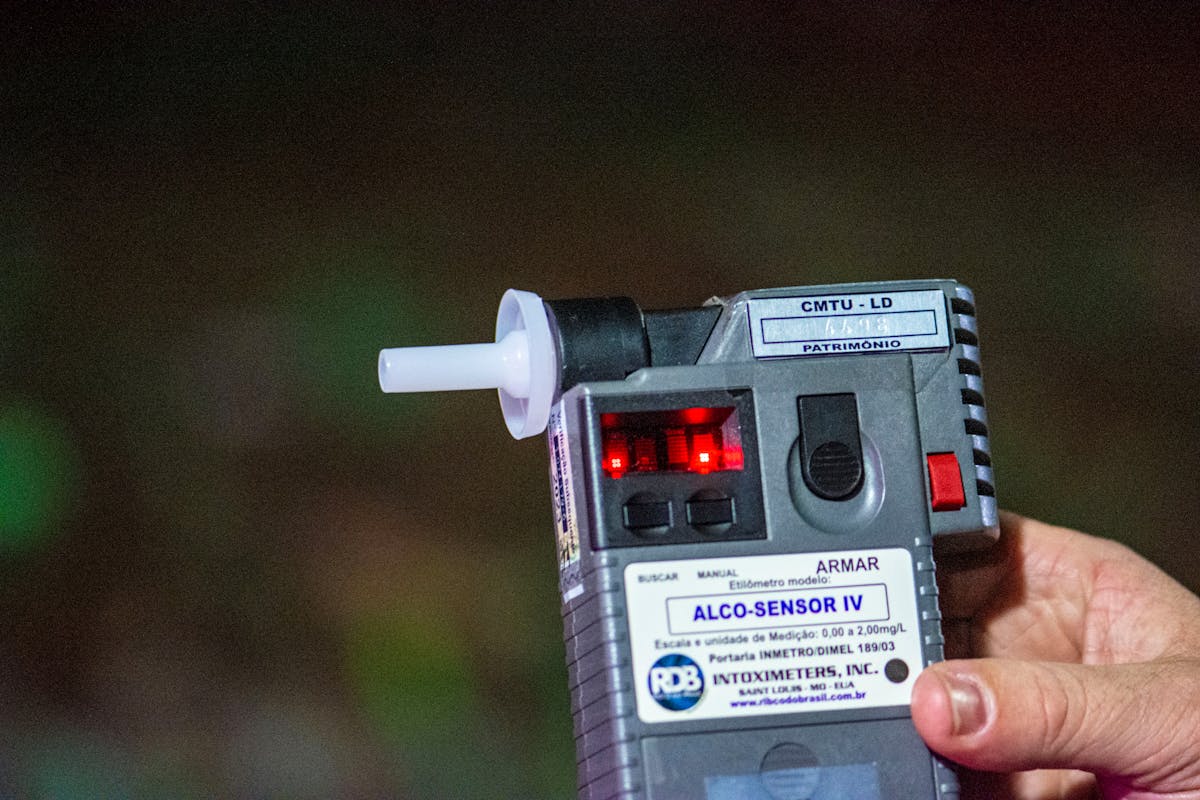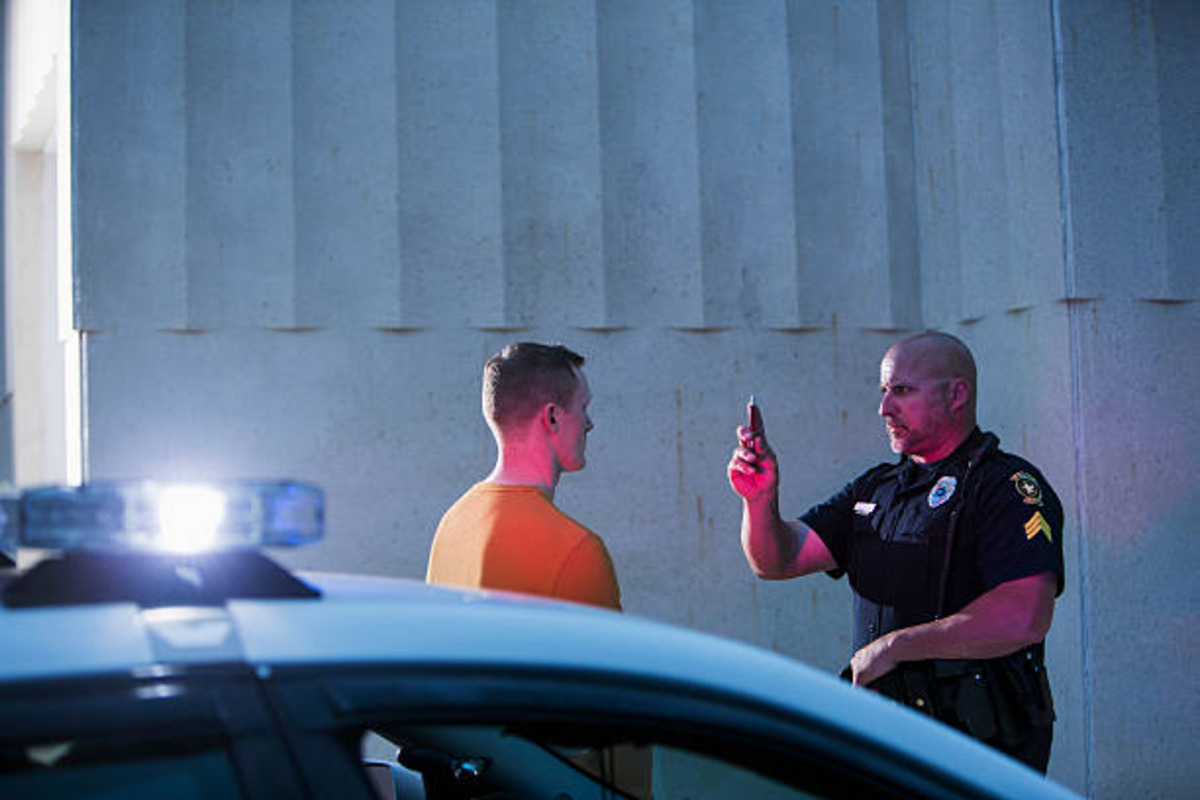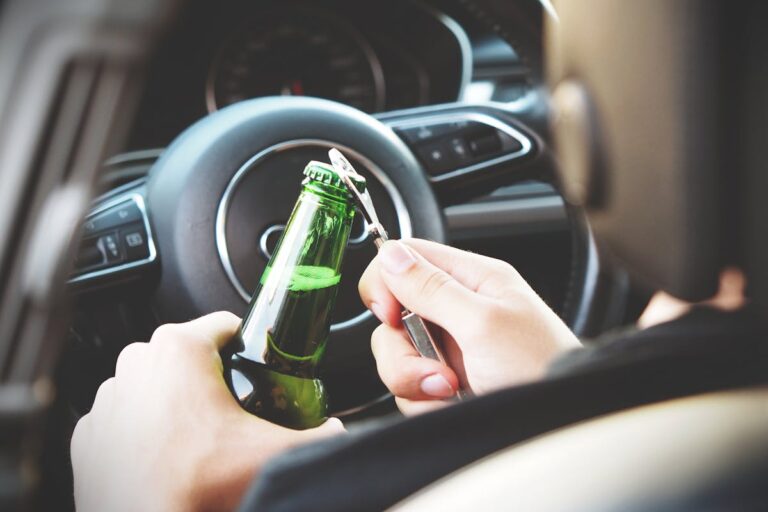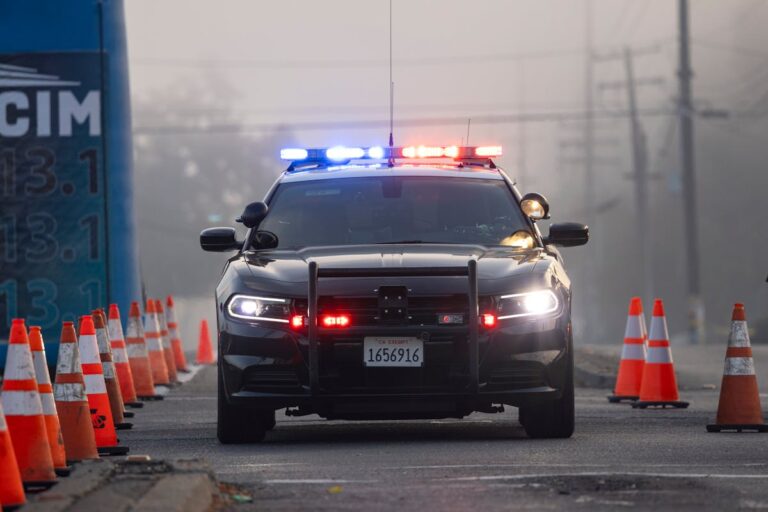Why You Should Never Take a Texas Field Sobriety Test

In the intricate landscape of legal rights and law enforcement protocols, the subject of field sobriety tests in Texas merits thoughtful discussion. These tests, commonly administered when intoxication is suspected, are far from infallible. The potential for error, fueled by factors such as stress, environmental conditions, and the inherent subjectivity of the tests, is considerable. Additionally, the lack of standardization in their administration compounds these issues. It is essential, consequently, to examine why refusing these tests may not only be within your rights but could also be a wise legal strategy.
Understanding Field Sobriety Tests
Steering through the intricacies of field sobriety tests can be an intimidating task. These tests, often conducted roadside, are designed to gauge a suspect’s physical and cognitive impairment, thereby providing a basis for arrest on drunk-driving charges. However, the test accuracy of these assessments is a matter of significant controversy.
Critics argue that field sobriety tests are inherently subjective, relying on the officer’s personal judgment rather than concrete data. In addition, various factors such as stress, fatigue, or even certain medical conditions can mimic signs of intoxication, leading to false positives. Studies have shown that these tests can be as much as 30% inaccurate, even when administered under ideal conditions.
The legal consequences of a false positive can be severe, leading to unwarranted arrests, hefty fines, or even jail time. Given the potential for error and the serious legal ramifications, it is advised to approach these tests with caution. Understanding the limitations and potential inaccuracies of field sobriety tests can equip you with the knowledge to make informed decisions when confronted with such a situation. It is essential to remember that your freedom and legal rights may depend on this understanding.
Your Legal Rights in Texas
In light of these potential inaccuracies and the serious legal consequences associated with field sobriety tests, it becomes essential to familiarize oneself with the legal rights available to Texas residents. One such right is the ability to refuse to participate in these tests. While it is true that refusal could lead to an automatic license suspension, it’s vital to weigh this against the risk of a false positive test result leading to an arrest. This is where the importance of legal representation arises.
In the event of an arrest, procedures must be followed to guarantee your rights are not violated. You have the right to remain silent, to avert self-incrimination. Additionally, you have the right to consult with an attorney before answering any questions.
Furthermore, Texas law stipulates that you have the right to refuse a breathalyzer or blood test. However, this refusal can result in license suspension for up to 180 days for first-time offenders. This is a significant point to reflect on, particularly as these tests might hold their own inaccuracies. Understanding your legal rights can provide essential protection in these situations.
Inaccuracy of Sobriety Tests
The accuracy of field sobriety tests is a highly contentious issue due to various factors that can skew the results. Inherent flaws in test procedures, the subjective interpretation of results by law enforcement, and the unreliable nature of physical coordination assessments can all contribute to inaccurate assessments of sobriety. Consequently, the validity of these tests as definitive indicators of impairment is questionable at best, and should be examined critically.
Flaws in Test Procedures
Misinterpretation often clouds the reality of field sobriety tests conducted in Texas. One notable issue is the test validity concerns that arise due to procedural inconsistencies.
The administration of these tests is not standardized, leading to vast differences in how each test is conducted and evaluated. For instance, variations in test conditions, such as the lighting, the surface on which the test is performed, and even the footwear the suspect is wearing, can greatly impact the test results. These variables, often overlooked, introduce a considerable margin of error, undermining the accuracy and reliability of the results.
Moreover, the tests themselves are inherently flawed. They are designed to measure impairment, but many factors unrelated to alcohol consumption can affect performance. For example, certain medical conditions, medications, and even nervousness can interfere with a person’s balance and coordination.
Lastly, these tests are not scientifically validated. Despite widespread use, there is a lack of empirical evidence to support the claim that field sobriety tests accurately measure alcohol-induced impairment.
Subjective Results Interpretation
Building upon the inherent inconsistencies of field sobriety tests, an equally troubling issue lies in the interpretation of the results. This process is rife with subjective bias, which can greatly undermine the test’s credibility and fairness. Law enforcement officers, despite their training, are still human and susceptible to personal biases. These biases can unconsciously influence how they interpret the test results, leading to errors in judgement and potential false positives.
Another critical point to reflect on is the impact of contextual factors. The environment in which the test is conducted, the suspect’s physical condition, and even the time of day can all affect performance on these tests and, subsequently, the interpretation of the results. These variables introduce an additional layer of uncertainty and complicate the assessment process, further diminishing the reliability of field sobriety tests.
Unreliable Physical Coordination Assessment
Evaluating physical coordination during a field sobriety test is riddled with inaccuracies, casting a considerable shadow over their reliability. The balance assessment, a vital component of these tests, is particularly flawed. This element, designed to detect impairment, relies heavily on an individual’s ability to maintain balance under challenging circumstances. However, numerous factors unrelated to alcohol consumption can affect balance, such as age, physical condition, and even footwear.
Moreover, coordination challenges are a common complaint. Tasks such as standing on one foot or walking in a straight line are not only physically demanding for many individuals but also can be affected by a myriad of non-alcohol related factors. Poor lighting, uneven surfaces, or even anxiety can greatly impact performance.
The variables that can lead to false positives are numerous, creating an environment ripe for misinterpretation and bias. As a result, the inaccuracy of sobriety tests, particularly regarding physical coordination assessment, renders them an unreliable tool for determining impairment. It is thus essential to question their legitimacy and the role they play in DUI arrests and convictions.
The Role of Anxiety and Stress
Anxiety and stress, two powerful psychological factors, can considerably influence the outcome of a Texas field sobriety test. Stress levels can distort a person’s cognitive and physical performance, making them appear impaired even when they are not. It is essential to understand how maneuvering high-pressure situations, such as a sobriety test, can inadvertently lead to false positives.

Impact of Stress Levels
A significant proportion of individuals undergoing a Texas field sobriety test often grapple with heightened levels of stress and anxiety. Stress management becomes an uphill battle as the test’s high-stakes nature magnifies anxiety triggers, pushing individuals into a state of hyperarousal.
The impact of this stress on the test’s outcome is substantial. Stress induces physiological responses that can be misinterpreted as signs of intoxication, such as tremors, sweating, or difficulty in focusing. While these symptoms could indicate impairment due to alcohol, they can also be the body’s natural reaction to stress.
Moreover, the test environment itself presents several anxiety triggers. The presence of law enforcement, the fear of potential legal repercussions, and the public nature of the test can all contribute to increasing stress levels.
From this perspective, it is evident that the Texas field sobriety test is not a fair assessment of one’s sobriety, but rather an anxiety-inducing process that exacerbates stress responses. Thus, refusing to partake in such a test may not be an admission of guilt, but a sensible decision to avoid unjustifiable stress and potential misunderstanding of its effects.
Anxietys Effect on Performance
Nearly all individuals facing the Texas field sobriety test experience some degree of anxiety, which can greatly impact their performance. One’s ability to execute the required tasks during this test is often compromised by the heightened levels of stress, leading to performance anxiety. This anxiety is not reflective of one’s sobriety but rather their emotional state during the test, causing an unfair representation of their capabilities.
Performance anxiety results from fear of failure and potential legal repercussions, manifesting in physical symptoms such as trembling, sweating, or even difficulty in coordination, all of which are likely to negatively influence the test results. This is where anxiety management comes into play. Techniques such as deep breathing and mental visualization can help individuals manage their anxiety levels, but during a sobriety test, such strategies may not be feasible.
Navigating High-Pressure Situations
Steering through high-pressure situations like a sobriety test can greatly amplify an individual’s existing stress and anxiety levels, making it a herculean task to maintain composure and perform well. It’s not uncommon for these heightened emotions to impair decision making, leading to actions that might not reflect a person’s typical behaviour or judgement.
Implementing stress management techniques can be a game-changer in these circumstances. Techniques such as deep breathing or mindfulness exercises can help regulate the body’s stress response, fostering a sense of calm and clarity. This could considerably enhance an individual’s decision-making capabilities, supporting them to navigate the situation more effectively.
Moreover, the perception of high-pressure situations can often be subjective and vary greatly from person to person. It’s essential to remember that the pressure and anxiety experienced during a sobriety test are not indicators of guilt. Rather, they are natural human responses to stressful circumstances.
Potential for Misinterpretation
An overwhelming majority of individuals misunderstand the complexity and potential pitfalls of field sobriety tests. Misleading indicators and cognitive biases often cloud judgments, not only of those under examination but also of the officers conducting the tests.
In essence, these tests are built on scientific principles, yet their implementation is far from an exact science. For instance, physical factors such as fatigue, nervousness, or underlying health conditions could manifest as signs of impairment, thereby becoming misleading indicators. Similarly, cognitive biases, such as the confirmation bias, may affect an officer’s interpretation of the test results. An officer who already suspects a driver of being under the influence might be predisposed to interpret any slight stumble or hesitation as a confirmation of impairment.
Furthermore, the tests involve a level of subjectivity that leaves ample room for misinterpretation. Without thorough training and impartiality, an officer’s interpretation can sway towards a false positive, causing unnecessary legal complications for the defendant. As a result, it’s essential to understand the potential for misinterpretation in field sobriety tests and consider this when deciding whether to submit to one.
Alternatives to Field Sobriety Tests
Understanding the potential for misinterpretation in field sobriety tests leads us naturally to contemplate what other options exist for those pulled over under suspicion of impaired driving. One viable alternative is the use of breathalyzer tests. Although these devices are not without their own set of issues, they are generally regarded as more reliable and objective than field sobriety tests. Breathalyzers measure blood alcohol concentration (BAC), providing a quantifiable result.
However, even breathalyzers have their flaws. This is where breathalyzer alternatives come into play. A popular choice is chemical testing, such as a urine or blood test. These tests provide the most accurate measure of a person’s BAC, even though they are more invasive and time-consuming.
It’s important to note that refusing a sobriety test in Texas can lead to automatic license suspension. However, the question isn’t whether to comply with law enforcement, but rather which test to opt for when the situation arises. Informed decisions can only be made when aware of the alternatives to field sobriety tests and their relative merits. Hence, understanding breathalyzer alternatives and chemical testing methods can greatly impact the outcome of a DUI stop.
Protecting Yourself Legally
In the complex landscape of DUI stops, it is essential to protect yourself legally. Many individuals wrongly assume that refusing a field sobriety test will automatically result in harsh legal consequences. However, this is not always the case.
Analyzing the legal framework of Texas, one finds provisions that allow for test refusals without immediate penal repercussions. This is not to say there are no repercussions at all, but rather that the immediate consequences are often less severe than a potential DUI conviction.
It is important to understand that the law is complex and multifaceted. The legal implications of test refusals can vary greatly depending on factors such as previous convictions and the specific circumstances of the stop. Consequently, it is essential to consult with a knowledgeable attorney to understand your rights and potential defenses.
Adopting a strategic approach to field sobriety tests can greatly mitigate potential legal consequences. While it may seem counterintuitive, refusing a test can sometimes be the most effective legal strategy. Protecting yourself legally in the context of a DUI stop is about far more than just passing a test. It is about understanding your rights and making informed decisions.
Frequently Asked Questions
What Is the Penalty for Refusing a Field Sobriety Test in Texas?
Refusing a field sobriety test in Texas may result in serious penalty implications such as license suspension. The refusal consequences are employed to discourage drivers from avoiding detection of potential impaired driving.
Are There Any Medical Conditions That Can Affect the Results of a Sobriety Test?
Yes, certain medical conditions such as neurological disorders, physical disabilities, and even some medications can potentially affect the accuracy of a sobriety test, leading to false positives in the assessment of impairment.
What Is the Difference Between a Field Sobriety Test and a Breathalyzer Test?
A field sobriety test assesses physical coordination, whereas a breathalyzer test measures blood alcohol concentration. However, breathalyzer accuracy and test reliability may vary, influencing the true representation of an individual’s sobriety.
Do Sobriety Checkpoints Violate the Fourth Amendment?
Sobriety checkpoints do not violate the Fourth Amendment, as per legal precedents. Despite intruding on individual privacy, they’re deemed reasonable due to their purpose in promoting public safety by deterring intoxicated driving.
Can I Request a Lawyer Be Present During a Field Sobriety Test?
Yes, you can request legal representation during a field sobriety test. However, officers are not obligated to halt the process until your lawyer arrives, but they must inform you of your test rights.



